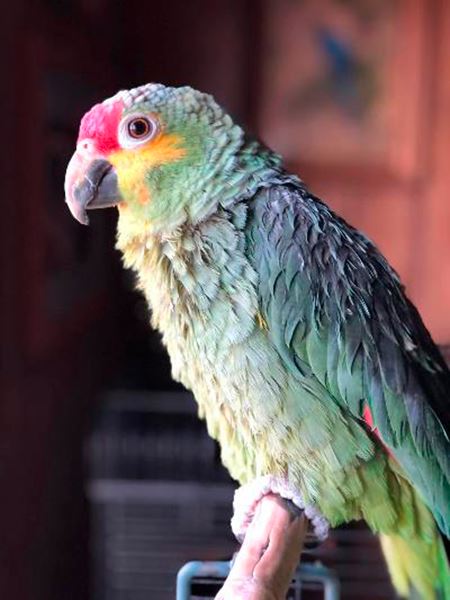They first arrived in Europe in 327 B.C. with Alexander the Great after he returned from conquering India and brought Ring-neck and Alexandrine parrots back to Greece.
Songbirds were popular during the Victorian era when wild species were frequently caught and kept in ornate enclosures. While there’s always been some level of interest, bird ownership seemed to go through a renaissance of sorts in the late 20th and early 21st centuries — particularly cockatoos.
The attraction to these beautiful yet curious creatures is no mystery. Unfortunately, as with a lot of other pets, a significant segment of the population goes into owning a bird largely uninformed.
They are a lifetime commitment when you consider members of the parrot family can live to be between 60-80 years old. High maintenance, they’re noisy, messy, and incredibly smart, which leads to boredom if they aren’t provided with regular stimulation, and they can throw temper tantrums to rival that of a toddler. They can also form incredibly close bonds with people that are astonishingly touching.
As of 2017, there were 20.6 million birds kept as pets in the U.S., up from 16 million in 2011. But because most people have little to no idea what they’re letting themselves in for when it comes to bird ownership, large numbers of them are surrendered or, worse yet, irresponsibly released.
Today, the vast majority of parrots sighted in the U.S. are non-natives. Generally, they’re either recently escaped or released, or they’re descendants of pets that have since established permanent breeding colonies.
And it isn’t just exotic birds that find themselves in limbo. Other fowl are frequently left in the same or similar predicaments. So where do they go here in Tucson or the surrounding area when their company is no longer desired, or they are surrendered for other reasons? Two sanctuary/rescues come to mind.
Forever Wild Avian Sanctuary
Forever Wild is both a rescue that helps rehome domestic birds and a sanctuary. Sometimes THEY end up as the birds’ forever home. The sanctuary’s work extends to domestic fowl, like ducks, geese, quail, pheasant, peafowl, chickens, guinea fowl, and even domestic doves and pigeons. They also look after and assist parrots of all sizes, from the largest macaws to the tiniest parrotlets.
According to Assistant Director Shiloh Walkosak, “Whenever a pet becomes popular, there is an increased need for rescue. During the pandemic, we saw an increase in the number of people that wanted backyard flocks. Whether for the eggs or because they thought that meat would be scarce…
“When those folks learned that caring for chickens or ducks and geese was not as easy as maybe YouTube and Tik Tok made it out to be, or they ran afoul of their city ordinances, we started seeing a big increase in the number of flocks needing new homes. We try to offer guidance on care to help families keep their flocks and help with rehoming when needed.
“Most of us grew up with dogs and cats, so we know the basics. What to feed them, how they act when they’re sick, or even where to find a vet. Birds are new to a lot of us. Having an Amazon parrot or a goose is something most of us have to learn about. Sure, we can research their needs online, but how do we know whose advice to follow? It helps to have a real person to ask for help. That’s what we’re here for!”
Forever Wild Avian Sanctuary
520-574-3579
forever-wild.org
Tucson Parrot Rescue
The Tucson Parrot Rescue (TPR) is another avian sanctuary here in Pima County. Their mission is to rescue parrots in need of new homes, no matter the reason, and to “improve the lives of companion birds.” One of their main goals is to increase peoples’ awareness of what to expect from parrots and how to care for them properly once home.
Again, public education is vital for preventing surrenders. TPR notes that parrots’ high level of intelligence, long lifespans, and innate wild nature make their needs greater than most people can meet.
To help stem misconceptions about parrot ownership, they offer in-home education programs for interested persons. Each class is an individual-based course, which includes general care, nutrition, proper housing, wellbeing, health, and recognition of common household hazards.
TPR also assists in reuniting lost birds with their families, help birds with issues so they can remain in their homes, and arrange adoption of unwanted birds into caring homes with educated caregivers.
Tucson Parrot Rescue
520-747-0554
tucsonparrotrescue.com













